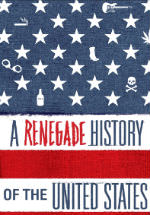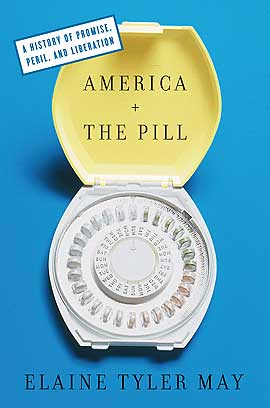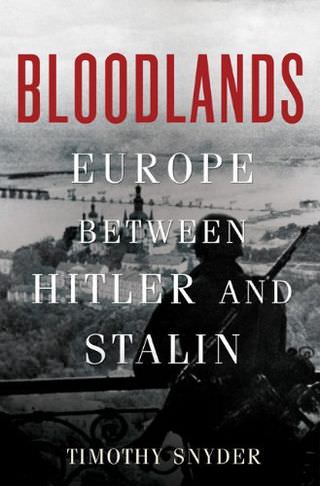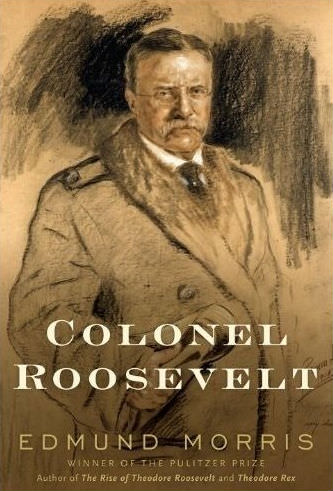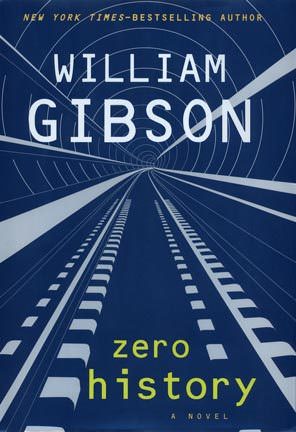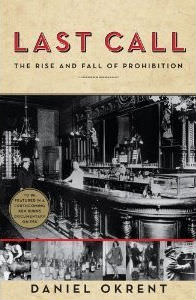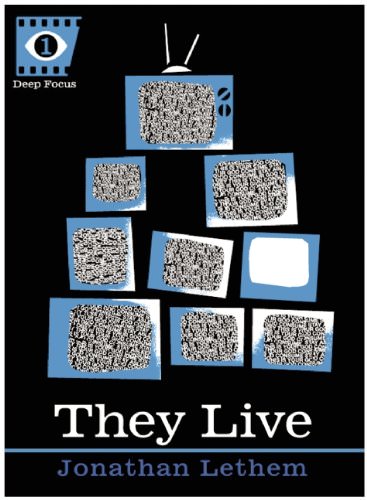Ronald Bailey, science correspondent
The Rational Optimist: How Prosperity Evolves, by Matt Ridley, Harper Collins, 448 pages, $26.99
Ideas have sex. In biology, through the evolution of sex some creatures became better able stay ahead of the competition. Ridley persuasively analogizes trade to sex as the engine driving the evolution of human culture. People are the only creatures known to trade one object for a different object-say, a fishing net for a spear. Thus was born the division of labor and markets. Progress is an evolutionary process, not a planned one. Deploying these basic insights, Ridley traces the arc of human prosperity from the caves to the gleaming towers of modernity. Although he acknowledges problems, Ridley cogently argues that human creativity is an inexhaustible resource, fully justifying both his title and his conviction that the best is yet to come. As the saying goes, if you read just one book next year….
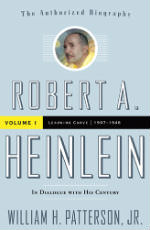
Brian Doherty, senior editor
Robert A. Heinlein: In Dialogue with His Century Volume One (1907-1948): Learning Curve, by William H. Patterson, Tor Books, 624 pages, $29.99
Science fiction guru and grand libertarian inspiration Heinlein finally gets the full doorstop literary biography treatment, and it’s a treat. Digging deep into a documentary record that isn’t as rich as a biographer might hope for-lots of Heinlein’s early effects were destroyed-Patterson skillfully guides the reader (without telling him what to think) through Heinlein’s childhood, Navy years (he left because of illness, though would have been happy to serve for life), 1930s activism in the socialist-leaning Upton Sinclair wing of California’s Democratic Party, and his idyllic-then-hellish second marriage. Heinlein always scorned the restrictive social mores of his time, but his political and economic libertarianism hadn’t yet developed by the time this volume ends. Only in a footnote do we learn a volume of Pearl Harbor revisionism was key to disabusing Heinlein of his earlier liberal FDR worship.
Nick Gillespie, editor in chief, Reason.tv and Reason.com
A Renegade History of the United States, by Thaddeus Russell, Free Press, 400 pages, $27
I picked up this fully mesmerizing account of why America is so totally awesome fearing that it would be a third-rate knock-off of Howard Zinn’s A People’s History of the United States. Russell’s Renegade History recovers how the Irish, the Jews, the Italians, and even the blacks all became white (and stopped being gangsters), what a total jerk John Adams was (the hagiographical musical 1776 be damned!), why Dizzy Gillespie (no relation, alas) was rejected for the draft in World War II, and so much more. He skewers lefties, righties, and even libertarians (for whom he has the most sympathy). Long after the Air Force has enough money to bomb all the schools holding bake sales and kids are free to attend slacker magnet schools, this should be the first book that gets crammed down their throats.
Katherine Mangu-Ward, senior editor
America and The Pill: A History of Promise, Peril, and Liberation, by Elaine Tyler May, Basic Books, 199 pages, $25.95
The contraceptive pill celebrated its 50th anniversary in 2010. American studies professor Elaine Tyler May’s America and The Pill makes well-trodden territory fresh again in her chapters on the men involved in the invention, sale, and vilification of the baby-prevention tablets. They hoped convenient hormonal contraception would stave off nuclear war, stem the rise of communism in the third world, and defuse the population bomb. They feared that unleashed female desire would turn women into ravenous man-eaters. Five decades later, the jury is still out on all counts.
Michael C. Moynihan, senior editor
Bloodlands: Europe Between Hitler and Stalin, by Timothy Snyder, Basic Books, 544 pages, $29.95
The strict rules set forth by the Reason Book of the Year Committee require that I select only one entry, though 2010 was a bountiful year for both fiction and non-fiction-so allow me to clumsily skirt the rules and add a stack of books very much worth reading: Paul Berman, Frank Dikötter, Martin Amis, Michael Burleigh, Pascal Bruckner, Christopher Hitchens, Saul Bellow’s letters. But if your time is limited, go straight to Timothy Snyder’s Bloodlands, so named for the pitiable chunk of land between the Soviet Union and Nazi Germany-Ukraine, Poland, Belarus, the Baltic states-where millions were liquidated between 1930-1945. Snyder’s brilliant and bone-chilling exposition of the Stalinist and Hitlerian killing fields, which utilizes much new archival material, makes one wonder how contemporaneous deniers of Soviet crimes (to deny fascist crimes was, thankfully, always considered the exclusive domain of cranks and anti-Semites) would react to, for instance, his accounting of the 100,000 Poles murdered during the 1937-38 purges or the six million who died because of planned famines. When the historian Robert Conquest was asked to provide a subtitle for a new, post-Cold War edition of his book on Stalin’s purges, he suggested, “I told you so, you fucking fools.” The fools are now looking even more foolish, thanks to the efforts of indefatigable historians like Snyder.
Damon Root, associate editor
Colonel Roosevelt, by Edmund Morris, Random House, 784 pages, $35
Each installment of Edmund Morris’ beautifully-written three-volume life of Theodore Roosevelt contains some dismaying information-from the trust-buster’s racism and imperialism to his crafty warmongering in the run-up to the Spanish-American War-but Colonel Roosevelt is the biggest downer of the bunch. The book opens with the former president slaughtering animals on safari and ends with the unneccessary death of his beloved son Quentin, one of the 50,000 or so Americans killed in World War I, a pointless bloodbath T.R. desperately wanted the U.S. to enter. In the interim Roosevelt mounted a Progressive Party challenge to his hand-picked presidential successor William Howard Taft, thus ensuring victory for the monstrous Woodrow Wilson, who segregated the federal government, launched the country into that squalid war, seized control of the economy, and outlawed free speech. Thanks to Morris’ considerable talents, this depressing chapter of American history was a joy to read.
Peter Suderman, associate editor
Zero History, by William Gibson, Putnam, 416 pages, $26.95
Cyberpunk visionary William Gibson coined the word cyberspace in 1982 and helped build the linguistic foundations of the digital age. His recent novels, though, have shifted the balance between prediction and description: For most of the last decade, his work has been nestled firmly in the present day. His latest novel, Zero History, captures the zeitgeist of the connected-age with eerie precision. It’s a high-tech thriller constructed out of information-age infrastructure: secretive social networking, obscure couture, high-end marketing firms, and military contracts. Gibson’s present, like his future, is driven by the interplay between mass commerce and individual preference. Not only is everyone online, they all have something to sell.
Jacob Sullum, senior editor
Last Call: The Rise and Fall of Prohibition, by Daniel Okrent, Scribner, 468 pages, $30
In this engaging and illuminating history of the 18th Amendment’s birth and 14-year life, the journalist Daniel Okrent vividly shows how prohibition warps everything it touches, transforming ordinary business transactions into tales of intrigue. His detailed descriptions of the ways in which Americans managed to get their booze despite the government’s determination to stop them are a commentary both on human ingenuity and on the senseless costs imposed by paternalistic edicts. Okrent explains how the Anti-Saloon League turned a minority position into the supreme law of the land by mobilizing a highly motivated bloc of swing voters and how it was ultimately defeated by an unlikely coalition of angry wets and disillusioned drys. The story of their unprecedented and never-repeated feat offers hope to those of us who recognize the parallels between alcohol prohibition and the war on other drugs.
Jesse Walker, managing editor
They Live, by Jonathan Lethem, Soft Skull Press, 208 pages, $13.95
John Carpenter’s They Live is a lively leftist B-movie beloved by fans of paranoid science fiction. Jonathan Lethem’s They Live subjects the film to what must be the closest reading it has ever received, teasing out the curious contradictions in the picture’s worldview and uncovering some of the odder implications of the things we see onscreen. The result is a smart and enjoyable take not just on Carpenter’s cult movie but on a host of cultural topics, from conspiracy theories to workplace shootings to graffiti. If that sounds a little cerebral for a movie starring a pro wrestler, don’t worry; to his credit, Lethem never forgets that the film is fun. I can’t really claim that this is the best book of the year, but it’s the book that most feels like it was specially designed to appeal to me.
